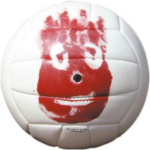

SARA SANDERS GARDNER
Independence is touted as the gold standard of adulthood, and not often questioned as such. In fact, it’s unlikely that you’ve ever heard someone say, “I don’t want my child to become independent!” A quick internet search will return thousands of articles on how to teach your teen or adult disabled child how to become independent, or live independently, along with checklists of all the skills they need to master prior to reaching that ultimate goal that marks them as a “true adult.”
Setting aside that autism is a developmental delay, and the timing considerations regarding skills acquisition that are often ignored in pursuit of keeping up with typical peers, the question remains: Is independence a goal to be pursued at all?
Before delving into that question, please indulge a story or two. At age 20, as an undiagnosed autistic college student, I left home for the first time to live in a college dorm. I was spectacularly unprepared, although not really in the area of “independent living skills.” I could do my laundry, keep clean, find food, and even communicate with roommates, more or less. What I couldn’t do was figure out why I couldn’t use the bathroom there, and needed to drive home 90 miles every weekend in order to do so. And no, I certainly didn’t tell anyone about it! My parents thought I was coming home to do laundry.
For the things I didn’t know, I called my mom. I remember one day I defrosted some hamburger meat, and it smelled odd. I called Mom. She told me, “When in doubt, throw it out.” So, I did. I called my mom quite a bit over the years, every day in fact, until she died when I was 47 years old. She was never able to teach me all the things I needed to know before I moved out of the house for good at age 26, and the phone was the next best thing. I often wonder what it would have been like if she had known I was disabled. If I would have been better prepared, or less prepared. More or less anxious. More or less willing to call for help.
Because, words matter. They matter to me, and, in autistic culture, they matter to us. The dictionary definition of independence is: freedom from the control, influence, support, aid, or the like, of others.
What if my mom had been pushing me to be independent? What if I thought I was supposed to do it all on my own? And, although I certainly wanted to be free of my parents’ control, would they really want me to be free of their influence, their support, their aid? Would I?
As I started raising my own son, and he earned his own autism diagnosis, I began to realize how important it was to let him know that we are a team, and that further, there are other people in the world that he can rely on as well. That people are here to help each other, and he needs to know how to identify them, and work with them. And that telling him that he needs to be independent could possibly jeopardize that goal – the goal of interdependence.
One day, when he was about 20, I said to my son, about some perceived skill I thought he needed to have before he could live on his own, “You’ll need to learn how to do that before you can be independent!” And, he started to cry. He said, “You don’t think I’ll ever be able to live on my own. You think I’ll never learn enough to take care of myself.” That stopped me cold. I knew I was sending him the wrong message with those words pushing towards skill development, pushing towards independence, pushing him to do more. I immediately said to him, “No. You could live by yourself right now. You don’t need any of those things to live alone. You already know how to ask for help when you need it. You would be fine on your own. I’m so sorry I gave you the wrong impression. I believe in you.”
Because the definition of interdependence is: the quality or condition of being interdependent, or mutually reliant on each other. Stop and think about it for a moment. That’s what we want for our autistic adult children, isn’t it? For them to have mutually reliant relationships? With us? And with others?
As I was building the Autism Spectrum Navigators program at Bellevue College, a wonderful young man named Ben gave me that same advice. He wrote to me and said,
“My suggestion for parents is to rethink “living independently” into “living mostly independently,” and to break that down into smaller and quantifiable goals. Not even NT’s live completely independently all the time, and yet that’s what many people with AS think their parents are expecting. Placing arbitrary and unrealistic deadlines by saying things like “Your father and I are going to do everything we can to make you independent by the time you graduate from high school” creates a lot of extra stress and anxiety, and causes a 20, 25, or 30-year-old who still lives at home to feel like a failure (I moved out when I was 26). Even the 29-year-old from Square Pegs who lives at home has made progress toward becoming more independent, but it dashes his confidence and hope every time his dad says something like, “You’re 29, when are you going to finally get your own place?” rather than saying, “You’ve improved this, this, and this, and I’d like to help you improve more on this, how can we do that? Any ideas?”
When we consider interdependence, and what it means, we quickly realize that no one is truly independent. Think through your day: did you make your own coffee? Cut and / or color your own hair? Change the windshield wipers or rotate the tires on your own car? Deliver flowers to your mom for her birthday yourself? Clean your house? Mow your lawn? If you’re anything like me, the list of things you didn’t do all by yourself is much longer than the list of things that you did! And, even if you are a fiercely independent type, you will likely have to admit that there are just some things you don’t do for yourself. Grow or raise your own food? Generate your own electricity? If you live in Oregon – pump your own gasoline?

In the classroom one day, going over these terms with a group of freshman college students, I jokingly said, “No one is completely independent. Well, except for maybe Tom Hanks on the island in the movie Castaway.” To which my students immediately replied, “No, he wasn’t independent – he had Wilson!” Even on a deserted island, we need other people. Teach interdependence to your autistic children, teens, and young adults, and watch them turn to others when they need help and support. If you need something to help you remember, you can get a Wilson volleyball, just like the one I have on my office shelf.

Sara Sanders Gardner
Sara Sanders Gardner is an autistic professional living in Redmond, Washington, near Seattle. Sara is the designer and Program Director of Bellevue College’s Autism Spectrum Navigators program, now in its 8th year, serving over 200 students. Sara also consults with Microsoft’s U.S. Autism Inclusive Hiring program, and leads training sessions with prospective managers and team peers of individuals hired through the program – discussing areas such as social justice, autism as a culture and a disability, and communication styles.
Related Content
Advice from an Autistic Student: Living With People in College
Autism, LGBTQA Dating, Community, and Student Groups: A Reflection
Connecting to Services: Support for Your High School Student with a Diagnosis of Autism
fuld rapport
Forums: Person-First Language?
Junior Year: Five Things Students on the Spectrum Should Do to Prepare for College
Mental, Physical, and Emotional Well-being
Parent Perspective: Autism and the College Transition
Parent Perspective: Autism, Independence, Safety, and Campus Choice
Preparing for the Worst: Safety Tools for Your Autistic High School or College Student
Reflections from an Autistic Young Professional on HS to College Transition Mistakes
Strategies for Autistic Students in Overcoming Anxiety
Safe Sexuality on Campus for Adults on the Spectrum: Recognizing the Unique Challenges
Six Supports Autistic Students Can Ask Their College Professors For
Stairway to STEM Editorial Policy: Identifying Language
Strategies for Autistic Students in Overcoming Anxiety
Tips for Autistic Students: How to Prepare for the First Day of the Semester



